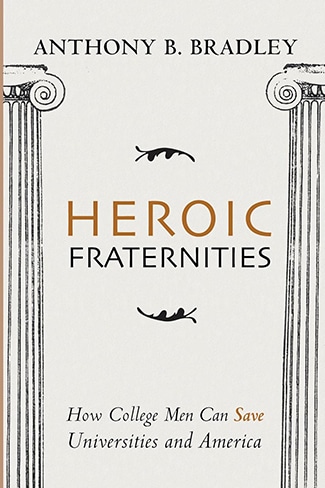Podcast Summary
The Importance of Personal Responsibility in Personal Safety: Taking ownership of our own safety is crucial, as relying on others can actually make us more vulnerable. By staying proactive and alert, we can effectively navigate potential threats and dangers in our surroundings.
Personal safety requires taking responsibility for our own well-being. While it's natural to rely on others for our safety, such as law enforcement or social media moderators, this mindset can actually make us more vulnerable. Spencer Coursen, a Threat Management Expert, refers to this reliance as the Safety Trap. He explains that feeling safe can sometimes lead to the greatest danger. Instead, we should be proactive in recognizing warning signs, staying physically fit, and being aware of potential threats. Coursen also discusses the importance of avoiding false authority and being assertive when necessary. Ultimately, by taking ownership of our safety and understanding the factors that put us at risk, we can effectively navigate a dangerous world.
The Safety Trap: Balancing Vigilance and Complacency: Feeling safe can lead to complacency and increase our risk. We must actively participate in our own safety, maintaining skepticism and vigilance to avoid falling into the trap of complacency.
Feeling safe can actually be the most dangerous thing we do. The safety trap occurs when our vigilance goes down and our risk goes up. We often live our lives on a pendulum swing between hyper-vigilance and complacency. It's important to understand that safety is not an end point, but a journey that requires our individual participation. We need a healthy sense of skepticism and a moderate dose of vigilance to stay safe. Examples like mass shootings and the COVID pandemic show how quickly we can fall back into complacency after feeling worried or taking precautions. It's crucial to recognize that complacency puts us at risk and that we are responsible for our own safety.
The dangers of avoidance and false authority: Confronting problems and questioning authority is essential for personal growth and effectively addressing challenges.
Avoiding problems and relying on false authority can lead to complacency and create safety traps. Avoidance often stems from a lack of understanding or the belief that ignoring a problem will make it go away. However, this only allows the problem to fester and grow, eventually turning into a crisis. In order to address concerns and prevent future difficulties, we must step out of our comfort zone and confront issues head-on. Similarly, relying on false authority can be detrimental in emergency situations. It is important to question the qualifications and intentions of those presumed to be experts, and to prioritize our own best interests. By practicing avoidance and avoiding false authority, we can develop the necessary skills, confidence, and awareness to tackle challenges effectively.
Prioritizing Safety: Understanding the Run, Hide, Fight Approach: In a life or death situation, prioritize your own safety by running and creating distance. It is important for schools, workplaces, and parents to have plans in place that prioritize individual safety and empower individuals to make decisions based on their own survival.
In a life and death situation, it is important to prioritize your own safety and be your own authority. The run, hide, fight approach has been misapplied and misunderstood, leading to potential dangers. The focus should be on running and putting as much distance between oneself and the threat as possible. Schools and workplaces should provide safe havens for individuals to go to in case of an active shooter situation. Parents should also have a plan in place to ensure the safety of their children. It is crucial to understand that false authority can be misleading and individuals have the right to make decisions based on their own survival. When it comes to personal safety, you are your own authority.
Questioning Authority and Prioritizing Survivability in Crisis Situations: Prioritizing survivability involves questioning authority, understanding the intention behind policies, and addressing underlying issues such as mental health, disenfranchisement, bullying, and neglect to prevent tragedies in schools and workplaces.
Prioritizing survivability is crucial in crisis situations. It's important to question false authority and not blindly follow protocols that may put you in harm's way. Being disagreeable doesn't mean being disgruntled for the sake of it, but rather speaking truth to stupidity. We must understand the intention and direction behind policies and question their effectiveness. In the case of school shootings and workplace attacks, insider threats are often the culprits. The pathway to violence usually starts within these environments, where grievances are first manifested. Mental health concerns, even without diagnosed illnesses, can contribute to such acts. Disenfranchisement, bullying, and neglect can push individuals towards seeking attention through harmful actions. It is crucial to address these underlying issues and provide support to prevent tragedies.
Identifying internal threats through grievances and ideation process: Recognizing behavioral anomalies and unusual actions can help detect potential threats, even without direct communication. Pay attention to patterns and communicate concerns to prevent harm.
Identifying a grievance is crucial in the assessment of internal threats. Whenever there is a threat, there is always a grievance involved. Whether it's someone expressing hatred or disruptive rhetoric, it is important to determine the root cause and when it shifted from a benign situation to a potentially harmful one. Furthermore, understanding the process of ideation is essential in recognizing potential leakage of intentions. These individuals often come up with a plan to resolve their grievances, which could involve violence, blackmail, or smear campaigns. Detecting behavioral anomalies and unusual actions can help identify potential threats, even if the person doesn't directly communicate their intentions. It is important to pay attention to these patterns and communicate concerns to prevent harm.
Early intervention, physical fitness, and balanced perspectives are crucial for preventing violence and promoting well-being.: By addressing grievances, promoting physical fitness, and teaching children to trust their instincts, individuals and communities can effectively prevent violence and create safer environments.
Early intervention is crucial in redirecting potentially violent individuals towards peaceful resolutions. By addressing underlying grievances and providing support, organizations and communities have the last chance to identify and prevent harmful actions. Additionally, maintaining physical fitness not only enhances personal safety but also reduces anxiety and depression. Regular exercise channels excess energy into productive outlets and fosters mental well-being. Physical fitness offers protection on multiple levels - self, family, and community - by equipping individuals with the confidence and ability to respond effectively in emergency situations. Overprotecting children can create safety traps, as it inhibits their ability to seek help when needed. Teaching children to trust their instincts and approach trusted adults fosters a balanced perspective on stranger danger and promotes their well-being.
Empowering Children to Stay Safe and Make Informed Decisions: Parents should teach children proactive strategies for safety, such as identifying safe places and engaging in open conversations to address fears, enabling them to make informed decisions and replace anxiety with understanding.
Parents should empower their children to stay safe without instilling unnecessary fear. Instead of simply warning them about potential dangers, parents should teach their children proactive strategies. This can include identifying safe places like food establishments with permits, families with adults present, and flags on buildings or uniforms. By creating a natural operating language for children to assess their surroundings, parents can help their children make informed decisions about who to approach for help. Additionally, parents should not dismiss their children's fears but instead engage in open conversations to address their concerns logically and provide real data. This approach enables children to replace emotional anxiety with understanding and sound decision-making.
Differentiating Disruptive and Predatory Communication: Trust your instincts and be aware of red flags when encountering potentially predatory communication, as it could pose a legitimate threat. Use your self-defense mechanism to protect yourself from harm.
It is important to distinguish between disruptive communication and predatory communication. Disruptive communication often comes from individuals who are unhappy with their own lives and try to project their discontent onto others. They may leave negative reviews, send negative messages, or engage in trolling behavior. On the other hand, predatory communication involves a level of insider information and may pose a legitimate threat. When encountering potentially predatory communication, it is crucial to trust our instincts and pay attention to any red flags. If something feels off or weird, it is our subconscious telling us to take action and investigate further. Our self-defense mechanism is highly evolved, and we should use it to protect ourselves from potential harm.
Documenting Inappropriate Behaviors: A Crucial Step for Self-Protection: Documenting incidents of harassment is essential for protecting yourself. It helps establish patterns and can provide evidence in potentially dangerous situations, saving you from harm.
Documenting inappropriate behaviors and harassment is crucial for self-protection. If you receive a disturbing message or encounter any form of harassment that makes you feel uneasy, don't dismiss it. Take the time to document the incident. Having a record of these behaviors over time can help establish a pattern of harassment or fear-inducing actions. By documenting each instance, you build a solid case to protect yourself. This was evident in a real-life scenario where a female employee faced harassment from a male co-worker, both at work and outside of it. When the situation escalated to the point of potential danger, the evidence saved her from harm. Remember, even if you document such incidents, it is best to avoid responding to the harasser and maintain a consistent stance of non-engagement.
Dealing with Online Harassment: Ignoring, Reporting, and Protecting Yourself.: When faced with online harassment, refrain from engaging with the perpetrator. Instead, focus on reporting their actions and preserving evidence. Prioritize your safety and seek help when needed. Explore additional resources in "The Safety Trap" by Spencer Coursen.
When dealing with online harassment or stalking, it is important not to engage with the perpetrator. Instead, ignore their actions and focus on reporting them to the appropriate authorities. Blocking or deleting them may only lead them to target you through different means that are harder to track. By keeping a record of their behavior, such as taking screenshots and emailing them to yourself, you can maintain evidence that may be useful if legal action is needed in the future. Remember to prioritize your safety and seek help if necessary. To learn more about the topic, you can explore Spencer Coursen's book, "The Safety Trap," or visit his website and social media channels for additional resources and support.












